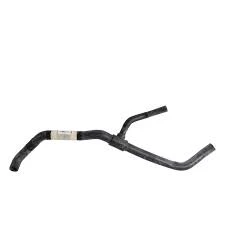Understanding Hydraulic Brake Lines and Their Importance in Vehicle Performance
Dec . 15, 2024 09:08 Back to list
Understanding Hydraulic Brake Lines and Their Importance in Vehicle Performance
Understanding Hydraulic Brake Lines Critical Components for Safety
Hydraulic brake lines are essential elements of modern braking systems in vehicles, playing a crucial role in ensuring safety and performance. As a part of the hydraulic braking mechanism, these lines transfer the force applied on the brake pedal directly to the brake calipers or wheel cylinders, enabling effective braking. In this article, we will explore the function, construction, maintenance, and importance of hydraulic brake lines.
Function of Hydraulic Brake Lines
The primary function of hydraulic brake lines is to convey hydraulic fluid under high pressure from the brake master cylinder to the brake components at each wheel. When the driver presses the brake pedal, the master cylinder generates hydraulic pressure, which is transmitted through the brake lines. This pressure forces the brake pads against the rotors in disc brakes or the shoes against the drums in drum brakes, creating the friction necessary to slow down or stop the vehicle.
The efficiency of this system relies heavily on the integrity of the brake lines. Any leaks, blockages, or structural failures can compromise braking performance, leading to increased stopping distances or complete brake failure. Therefore, understanding the design and maintenance of these lines is vital for vehicle safety.
Construction of Hydraulic Brake Lines
Hydraulic brake lines are typically constructed from high-strength materials designed to withstand the high pressures generated during braking. Most brake lines are made from either steel or specialized rubber. Steel lines are more durable and resistant to wear, making them ideal for long-term use, while rubber lines can provide flexibility and ease of installation, often used in vehicles with complex suspension systems.
The steel lines are usually coated to prevent corrosion, which is crucial given that brake lines are exposed to various environmental factors, including road salt, moisture, and temperature fluctuations. Rubber brake lines, on the other hand, are designed to withstand high temperatures and pressure, as well as being resistant to the chemical nature of brake fluids.
hydraulic brake line

Maintenance of Hydraulic Brake Lines
Proper maintenance of hydraulic brake lines is vital for ensuring the safety and reliability of a vehicle's braking system. Regular inspections should be conducted to identify any signs of wear, damage, or corrosion. Drivers should be vigilant for any fluid leaks, which can indicate a failing brake line. Additionally, it is advisable to check the condition of the brake fluid itself; it should be clear and at the appropriate level. Contaminated or low brake fluid can lead to reduced braking effectiveness.
Replacing brake lines is essential if they show signs of deterioration or if they have been damaged in an accident. It is advisable to use OEM (Original Equipment Manufacturer) parts for replacements to ensure compatibility and maintain the vehicle's braking performance.
Importance of Hydraulic Brake Lines
The importance of hydraulic brake lines cannot be overstated. They are fundamental for the overall functionality of a vehicle’s braking system. A failure in the brake lines can lead to severe accidents, making it crucial for drivers to stay informed and proactive about their vehicle’s maintenance. The braking system, being the primary means by which a vehicle can be controlled, makes the integrity of its hydraulic components paramount.
In addition to safety, well-maintained hydraulic brake lines contribute to the overall performance of the vehicle. Properly functioning lines allow for responsive braking, providing drivers with confidence and control. This is especially important in emergency situations where quick and effective stopping is required.
Conclusion
In summary, hydraulic brake lines are a critical component of any vehicle that must not be overlooked. They facilitate the transfer of hydraulic pressure needed for braking, and their condition directly impacts vehicle safety and performance. Regular inspections, maintenance, and timely replacements of damaged lines are necessary to ensure that the braking system functions optimally. Drivers should prioritize their vehicle’s brake line integrity, as doing so not only enhances safety but also promotes a smoother driving experience. Understanding and maintaining hydraulic brake lines is an essential responsibility for any vehicle owner committed to safe and effective driving.
